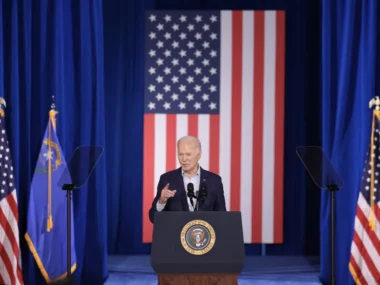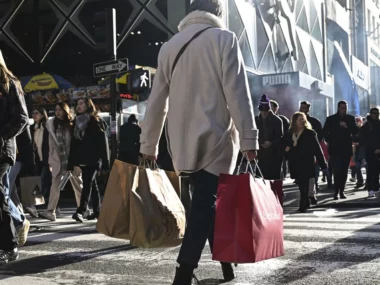Americans typically increase their spending during the summer months as they venture outdoors, plan vacations, and take breaks from work. However, this year, warm weather alone might not be enough to loosen consumers’ purse strings.
According to the 2024 KPMG Consumer Pulse Survey released on Tuesday, Americans intend to cut back on spending for away-from-home entertainment and vacations compared to last year. On average, they plan to reduce their monthly expenditures by 9% on dining out, 8% on entertainment and media, and 7% on travel and vacations.
The belt-tightening extends beyond discretionary spending. Only 21% of consumers plan to increase spending on personal care products, down from 32% last year, the survey found.
“Duleep Rodrigo, KPMG’s US consumer and retail sector leader, noted, “Consumers are becoming more budget-conscious, seeking discounts even on essential items.”
While some companies have responded to inflation by raising prices, others have opted to maintain prices by reducing product sizes, which has faced criticism from consumers. The recent Commerce Department report indicates a minimal 0.1% increase in US retail sales in May, hinting at consumer fatigue despite a slight improvement from April.
The slowdown in consumer spending could prompt the Federal Reserve to expedite interest rate cuts, provided inflation trends closer to the central bank’s 2% target. However, a significant and unexpected spending decline, given its substantial contribution to economic output, could signal broader recessionary concerns.
Consumers are also prioritizing quality and durability over lower prices, favoring retailers like Ross Stores, TJ Maxx, HomeGoods-parent TJX, Dollar General, and Walmart, which offer value for money. Conversely, higher-end retailers like Abercrombie & Fitch and Williams-Sonoma are benefiting from their reputation for high-quality products despite their higher price points.
The economic outlook remains mixed as consumers grapple with elevated inflation and borrowing costs. While early June’s consumer sentiment mirrored May’s subdued levels, there’s optimism that reduced inflation in May could prompt the Federal Reserve to implement rate cuts later this year.
Thousands of millionaires are leaving Britain
A significant number of millionaires are expected to leave the United Kingdom this year amid political instability and concerns about potential higher taxes under a future Labour government, a trend that diminishes the country’s appeal as a top destination for the wealthy. According to a report by migration advisers Henley & Partners released on Tuesday, as many as 9,500 individuals with at least $1 million in liquid, investable assets are projected to depart the UK. This figure more than doubles the number who left in 2023.
Hannah White, CEO of the Institute for Government, highlighted in the report that various factors are eroding the UK’s attractiveness to high-net-worth individuals, including ongoing repercussions from Brexit and a diminishing perception of London’s status as a global financial hub.
The report draws from data on 150,000 high-net-worth individuals tracked by investment firm New World Wealth, focusing on individuals such as company founders, CEOs, and managing partners who spend more than half the year in their new country of residence.
This ongoing trend of wealthy individuals leaving the UK, where 16,500 millionaires departed between 2017 and 2023, is part of a broader global pattern of affluent migration that appears to be accelerating. The Henley Private Wealth Migration report forecasts that 128,000 millionaires will relocate globally this year, surpassing the previous year’s record by 8,000 individuals.
Nvidia has surpassed Microsoft to become the world’s largest public company
Nvidia, hailed as Wall Street’s exemplar of artificial intelligence, has now ascended to become the world’s most valuable company, surpassing Microsoft.
As of Tuesday, Nvidia’s market capitalization closed around $3.34 trillion, narrowly overtaking Microsoft’s $3.32 trillion valuation. Apple follows closely behind as the third most valuable US company, with a market cap of $3.27 trillion.
On Tuesday, Nvidia’s shares rose by 3.5%, contrasting with Microsoft’s 0.5% decline and Apple’s 1.1% drop. Earlier this month, Nvidia joined the elite group of US companies with a market cap exceeding $3 trillion.
Over the past year and a half, Nvidia’s stock has experienced significant growth. The company’s dominance lies in its unmatched expertise in manufacturing chips that power artificial intelligence systems, including generative AI technologies like OpenAI’s ChatGPT, which can create text, images, and other media.











